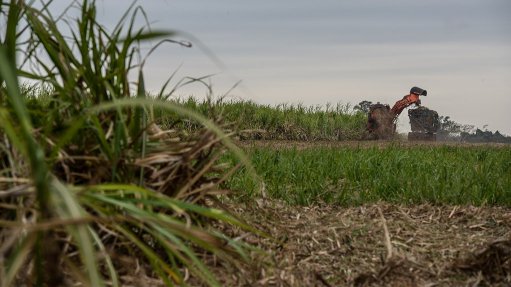
DETREMENTAL DROUGHT
The end of the current drought will ensure crop production is restored fully
Photo by: Bloomberg
The ethanol industry in South Africa remains lacklustre, owing to various issues, including low Brent crude oil prices, the persisting drought in the sugar cane-producing regions and the lack of policy implementation, says Ethanol Producers Association of Southern Africa chairperson Peter Starling.
“. . . the industry is currently very subdued. With Brent crude oil at $35/bl, it means that institutions that want to blend ethanol with fuel to make biofuel will struggle to remain competitive and economical,” he states.
Starling adds that, while companies might subsidise operations, the ethanol industry remains subject to the global oil price, making petrol prices more affordable.
“The biofuel ethanol industry might secure jobs and ensure environmental protection, but it remains conducive to the oil price. “When the oil price is as low as it is, it neither changes the capital cost of the investment required nor lowers the costs of raw materials. “The market price, however, is going to be driven according to the price of a barrel of Brent crude.”
Further, waning investment in the biofuel ethanol industry is attributed to the current drought affecting sugar cane producers in the central and eastern parts of South Africa.
Currently, 125 000 kℓ of absolute alcohol in ethanol is produced from sugar fermentation methods by four companies in KwaZulu-Natal, while energy and chemicals group Sasol produces 285 000 synthetic kilolitres of absolute alcohol in ethanol at its Secunda plant, in Mpumalanga.
“It does not help to invest in anything that is related to agriculture amid the current drought. “When the drought is over and crop production is fully restored, that would help sugar cane and fermentation ethanol producers, as the raw material cost will return to normal. “But if the oil price remains low, people will think twice before opting into biofuel production, as conventional fuel will remain attainable,” Starling notes.
Moreover, he adds that the biggest factor that will stimulate growth in the biofuel ethanol industry is government’s executing the biofuel policy, which would subsequently lead to demand for blending ethanol for a new fuel market.
“There is drafted biofuel legislation, but there are no policy rules in place on how it should be priced. “Producers have been waiting for policy for six years to understand what the incentives are . . . and how they will work. Nobody will . . . invest in the industry until they know what the rules of transactions and governmental contribution are going to be; therefore, subsidising biofuel ethanol is not its priority,” he explains.
South African ethanol producers supply to the local beverage, paint and pharmaceuticals industries, while exporting to African countries.
“The market is stable, but inspires little growth. “The only way that growth will take place in the domestic market is if a new market is created – this is where policy for blending ethanol with fuel for biofuels will allow for fresh competition to enter the market. Until then, the ethanol market will remain subdued,” he concludes.